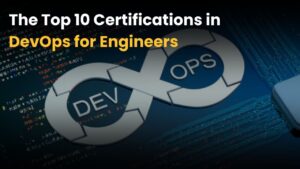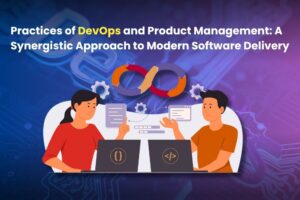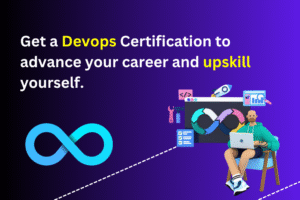Introduction
If you’re stepping into the tech world, you’ve probably heard the buzzword “DevOps” quite a bit. But what exactly is DevOps? DevOps is a combines software development (Dev) and IT operations (Ops). In today’s fast-paced tech landscape, understanding DevOps is crucial for any aspiring IT professional.
Understanding the DevOps Culture
Collaboration and Communication
This cooperative mindset helps eliminate barriers and ensures that both teams work together towards a shared objective—rapidly delivering top-notch software.
Continuous Integration and Continuous Delivery (CI/CD)
Infrastructure as Code (IaC)
This approach allows for automation and scalability, reducing the potential for human error and ensuring consistency across development, testing, and production environments.
Key Technical Skills for DevOps
Linux Fundamentals
A strong understanding of Linux is essential for any DevOps professional. Since many servers and DevOps tools run on Linux, familiarity with Linux command-line basics, file handling, process management, and system administration is crucial.
Scripting and Programming Languages
Understanding of scripting languages like Python, Ruby, or Bash is vital for automating tasks. Additionally, understanding programming languages such as Java, Go, or Node.js can be beneficial, as it allows DevOps engineers to understand and work closely with development teams.
Understanding of Cloud Platforms
Cloud computing is a significant aspect of DevOps. Understanding how to deploy and manage applications in the cloud, along with using cloud services for storage, networking, and computing, is a valuable skill set.
Important DevOps Tools
Version Control with Git
Git is the most popular version control system, enabling multiple developers to collaborate on a project at the same time without risking the overwriting of each other’s changes. Understanding Git’s basics, such as branching, merging, and pull requests, is fundamental for any DevOps role.
Continuous Integration Tools (Jenkins, Travis CI)
Tools like Jenkins, Travis CI are used for automation of integrating code changes and deploying them. They help in setting up a CI/CD pipeline, automating tests, and ensuring smooth deployments.
Configuration Management Tools (Ansible, Chef, Puppet)
Configuration management tools such as Ansible, Chef, and Puppet automate the setup as well as maintenance of servers. These tools ensure consistent server configurations and facilitate easy scaling as needed.
Containerization with Docker
Docker is a platform that allows applications to run in isolated environments known as containers. These containers are lightweight, portable, and maintain consistency throughout various stages of development. A solid understanding of Docker is essential for contemporary DevOps practices.
Orchestration with Kubernetes
Kubernetes is streamlining the deployment, scaling, and management of applications across multiple machines, automating many of the manual processes involved in these tasks.
Building Your First DevOps Project
Setting Up a Git Repository
Begin by creating a Git repository for your project. This repository will be the central hub for storing as well as managing your code. Platforms like GitHub, GitLab, or Bitbucket are ideal for this purpose.
Creating a CI/CD Pipeline
Next, establish a CI/CD pipeline using tools like Jenkins or Travis CI. CI/CD pipeline will automate the building, testing, as well as deployment of your code. Make sure your pipeline includes steps for automated testing and deploying to a staging environment before moving to production.
Deploying a Sample Application on a Cloud Platform
This step will help you understand the process of deploying applications in a real-world environment and managing them using cloud services.
Common Challenges in DevOps and How to Overcome Them
Dealing with Legacy Systems
To overcome this, gradually refactor and modernize these systems, integrating them into your CI/CD pipelines and using containerization to isolate and manage them.
Ensuring Security and Compliance
Security as well as compliance are vital aspects of any DevOps workflow. Utilize automated security testing tools to safeguard your code and ensure adherence to industry standards and regulations.
Managing Infrastructure at Scale
Managing infrastructure at scale requires effective use of automation and orchestration tools. Leverage tools like Kubernetes for container orchestration and Terraform for infrastructure as code to manage and scale your infrastructure efficiently.
Future Trends in DevOps
AI and Machine Learning in DevOps
The Rise of Serverless Architecture
DevSecOps: Integrating Security into DevOps
Conclusion
To sum up, mastering DevOps requires a combination of technical and soft skills, a deep understanding of key tools and practices, and a commitment to continuous learning. By establishing a strong foundation in these areas, you’ll be prepared to effectively navigate the evolving DevOps landscape and make valuable contributions to high-performing teams.






